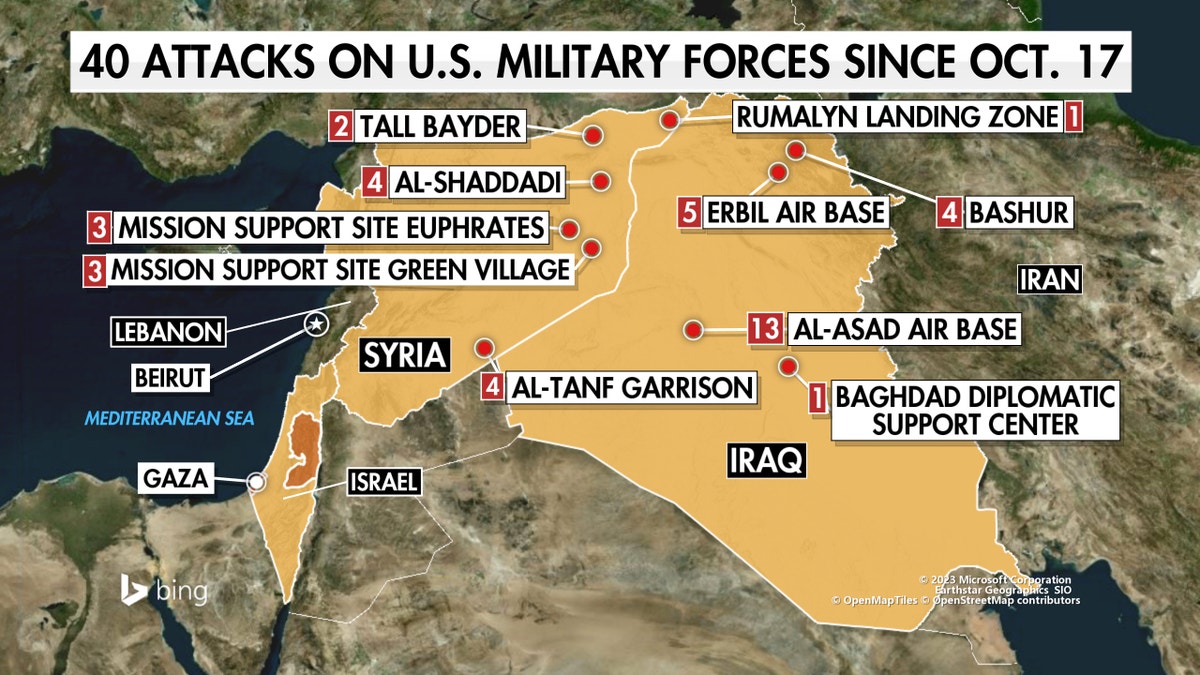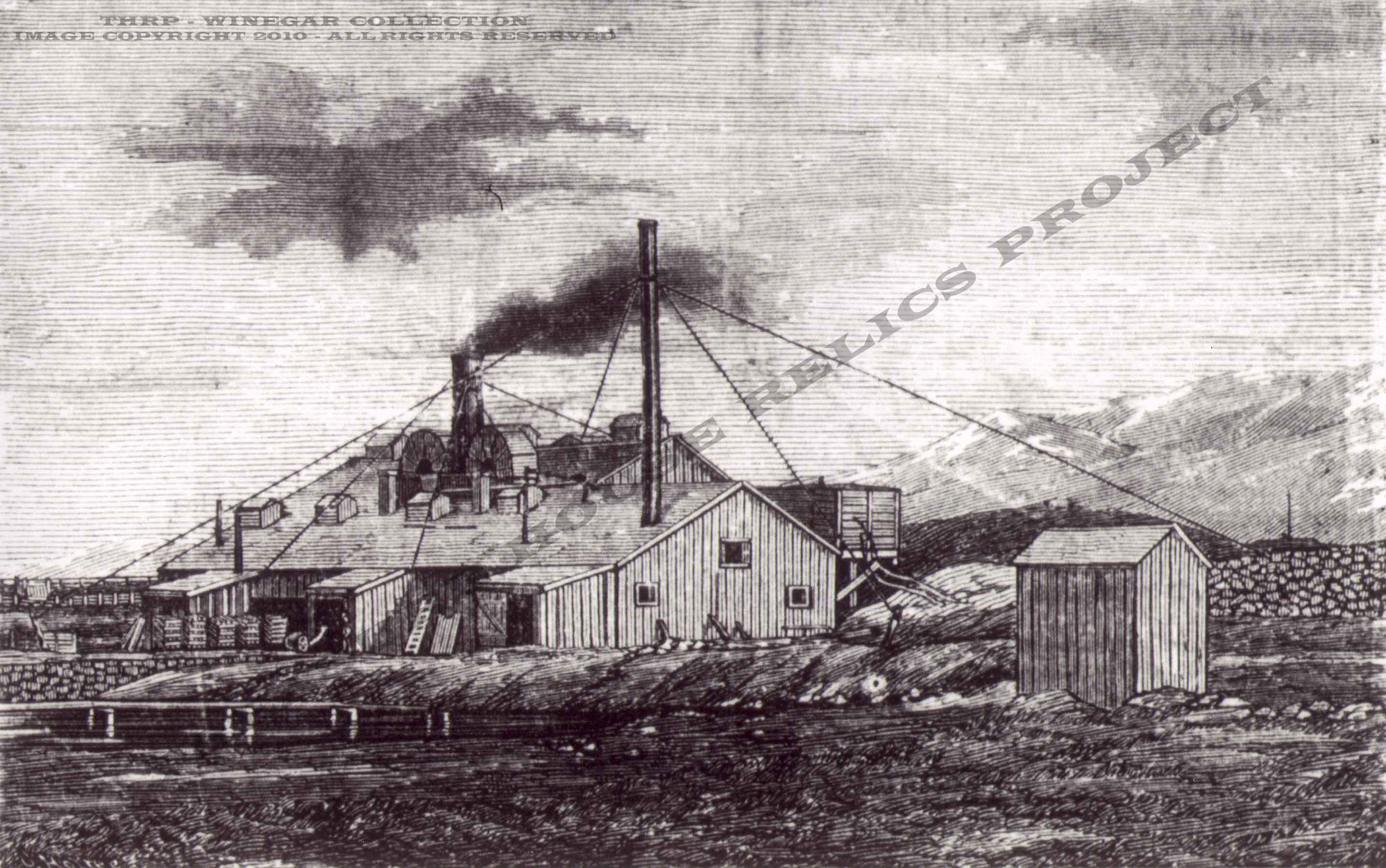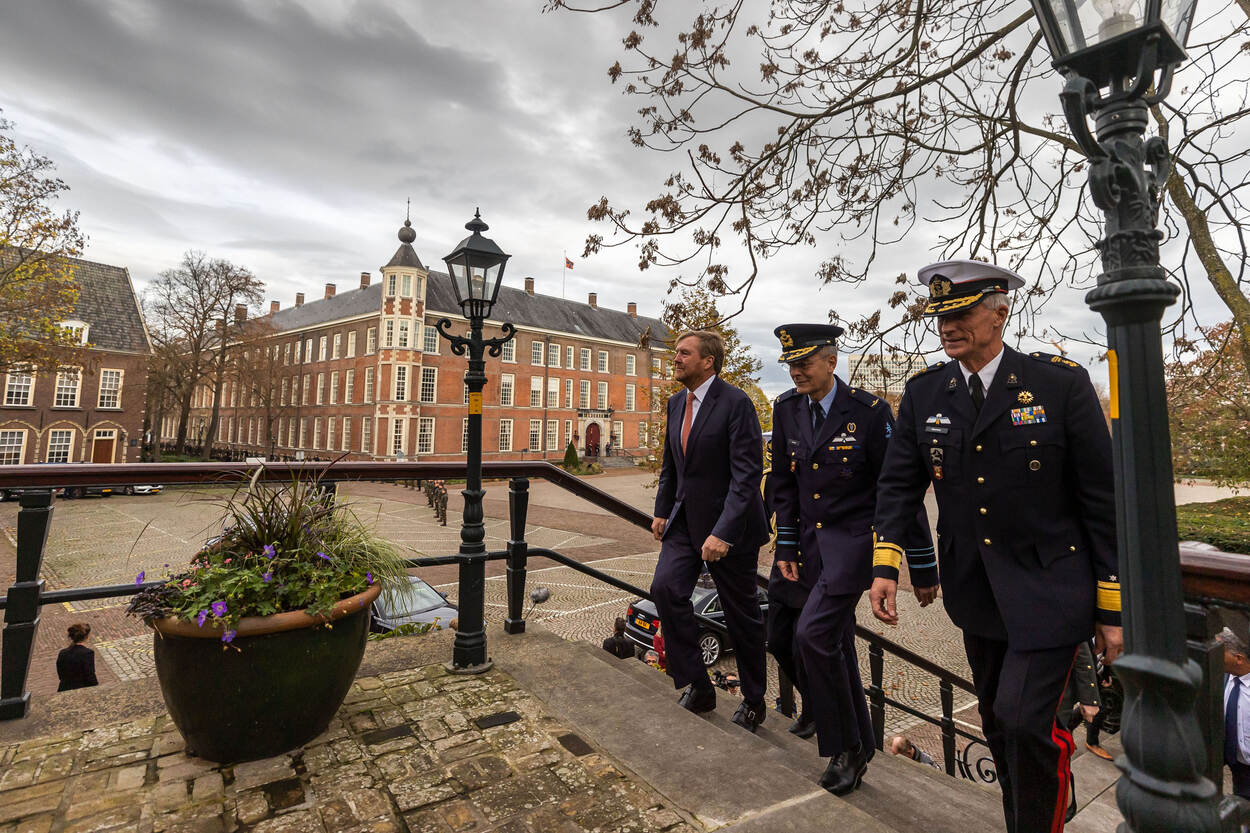Trump's Middle East Trip: A Win For Arab Nations, A Setback For Israel?

Table of Contents
Economic Benefits for Arab Nations
Trump's Middle East trip yielded significant economic promises and agreements, largely favoring Arab nations. This economic diplomacy played a key role in shaping the trip's legacy.
Increased Investment and Trade Deals
The trip resulted in several substantial investment and trade deals, boosting the economies of several Arab nations.
- Saudi Arabia: Agreements concerning arms sales and investment in infrastructure projects were announced, totaling billions of dollars. These deals promised significant economic growth and job creation.
- Egypt: Trump pledged increased financial aid and supported economic reforms, further strengthening the Egyptian economy.
- Other Arab Nations: Similar promises of increased investment and trade deals were made to other countries in the region, although specifics often remained vague.
This surge in foreign investment and trade agreements signaled a renewed focus on economic diplomacy in the region, potentially fueling economic growth and strengthening relationships with the US. These economic benefits cemented the trip's positive impact for many Arab nations. The keywords "economic diplomacy," "trade agreements," "foreign investment," and "economic growth" perfectly encapsulate this section's core message.
Strengthened Military Alliances
The trip also saw a strengthening of military alliances between the US and several Arab nations, primarily aimed at countering Iranian influence.
- Arms Sales: Significant arms deals were negotiated, providing these nations with advanced weaponry to enhance their defense capabilities.
- Military Cooperation: Increased military cooperation and intelligence sharing were discussed, improving regional security coordination against common threats.
- Strategic Partnerships: The strengthening of these military alliances presented a clear shift in regional power dynamics, solidifying the position of several Arab nations.
These military collaborations enhanced regional security for these nations, providing them with a stronger stance against perceived threats, primarily from Iran. The related keywords "military cooperation," "regional security," "arms sales," and "defense partnerships" appropriately describe the impact of the military aspects of the trip.
Strained US-Israel Relations
While the trip offered economic and security gains for several Arab nations, it simultaneously strained US-Israel relations. Several key actions and pronouncements fueled this tension.
Criticism of Settlements and the Two-State Solution
Trump's statements and actions concerning Israeli settlements in the West Bank and East Jerusalem drew considerable criticism and raised concerns about the viability of a two-state solution.
- Ambiguous Statements: His comments on the settlements were often perceived as less critical than those of his predecessors, raising questions about the US's commitment to a two-state solution.
- Lack of Pressure: The perceived lack of pressure on Israel to curb settlement expansion frustrated Palestinian leaders and many in the international community.
- Reactions: The responses from both Israeli and Palestinian leaders reflected the divergent interpretations of Trump's stance on the issue, highlighting the divisive nature of this issue in the region.
These actions cast doubt on the US's traditionally unwavering support for a two-state solution, impacting the delicate peace process and creating further mistrust. This section appropriately utilizes keywords like "Israeli settlements," "two-state solution," "Palestinian statehood," "peace process," and "US foreign policy."
Shifting Perceptions of US Support
Trump's trip and subsequent actions significantly shifted the perception of unwavering US support for Israel.
- Policy Shifts: Some viewed changes in US foreign policy as less supportive of Israel's interests.
- International Reactions: International reactions reflected a growing concern about the future of the US-Israel alliance.
- Israeli Concerns: Even within Israel, some voiced concerns about the long-term implications of Trump's policies.
This altered perception of US support, both domestically within Israel and internationally, resulted from a combination of policy decisions and statements. The keywords "US-Israel alliance," "unwavering support," "strategic partnership," and "international relations" accurately convey the core message of this section.
Long-Term Implications for Regional Stability
Trump's Middle East trip had far-reaching consequences for regional stability, impacting the balance of power and the prospects for peace.
Impact on Iran's Influence
The trip's impact on Iran's regional influence remains a subject of debate.
- Increased Pressure: While the trip didn't directly lead to a military confrontation, it signaled increased pressure on Iran from several Arab nations, emboldened by their strengthened alliances with the US.
- Regional Tensions: The strengthened military alliances could inadvertently escalate regional tensions, potentially destabilizing the region further.
- Indirect Impacts: The economic and military gains for Arab nations created a complex shift in the regional power dynamic, impacting Iran's influence in multiple ways, some beneficial and some detrimental.
The impact of this on Iran's regional influence was complex and indirect. The related keywords "Iranian influence," "regional power struggle," "geopolitical rivalry," and "Middle East stability" accurately summarize this complex interplay.
The Future of the Israeli-Palestinian Conflict
The trip's effect on the Israeli-Palestinian conflict remains highly contested.
- Setback to Peace Process: Many argue that the trip set back the already fragile peace process, further polarizing the conflict.
- Increased Tensions: The perceived shift in US policy fueled increased tensions between Israelis and Palestinians.
- Uncertainty for the Future: The long-term implications for the peace process remain uncertain, highlighting the ongoing challenges in achieving a lasting resolution.
The trip arguably hindered rather than advanced the already fragile peace process. The keywords "peace negotiations," "conflict resolution," "Middle East peace process," and "Israeli-Palestinian conflict" accurately capture the complexities of this issue.
Conclusion: Assessing the Legacy of Trump's Middle East Trip
Trump's Middle East trip yielded mixed results. While it brought significant economic and security benefits to several Arab nations, it also strained relations with Israel and potentially hampered the Israeli-Palestinian peace process. The long-term consequences remain to be seen, highlighting the complexities of regional power dynamics and the challenges of navigating this volatile geopolitical landscape. What are your thoughts on the lasting impact of Trump's Middle East trip on the region's future? Share your perspective in the comments below.

Featured Posts
-
 Cassie And Alex Fine Photos From The Mob Land Premiere Red Carpet
May 18, 2025
Cassie And Alex Fine Photos From The Mob Land Premiere Red Carpet
May 18, 2025 -
 Delayed True Crime Series Outperforms High Rated Netflix Romance
May 18, 2025
Delayed True Crime Series Outperforms High Rated Netflix Romance
May 18, 2025 -
 How Russias Call For Peace Talks Became A Diplomatic Setback For Putin
May 18, 2025
How Russias Call For Peace Talks Became A Diplomatic Setback For Putin
May 18, 2025 -
 Exploring The Rich Mining Past Of Boulder Countys Switzerland Trail
May 18, 2025
Exploring The Rich Mining Past Of Boulder Countys Switzerland Trail
May 18, 2025 -
 Analyse Toekomst Nederlandse Defensie Industrie In Tijden Van Crisis
May 18, 2025
Analyse Toekomst Nederlandse Defensie Industrie In Tijden Van Crisis
May 18, 2025
Latest Posts
-
 Todays Mlb Home Run Props Expert Predictions And Odds May 8th
May 18, 2025
Todays Mlb Home Run Props Expert Predictions And Odds May 8th
May 18, 2025 -
 Mlb Home Run Prop Bets For May 8th Schwarber And More
May 18, 2025
Mlb Home Run Prop Bets For May 8th Schwarber And More
May 18, 2025 -
 Mlb Home Run Props Best Picks And Odds For May 8th Can You Stump Schwarber
May 18, 2025
Mlb Home Run Props Best Picks And Odds For May 8th Can You Stump Schwarber
May 18, 2025 -
 Will Confortos Dodger Career Follow Hernandezs Trajectory
May 18, 2025
Will Confortos Dodger Career Follow Hernandezs Trajectory
May 18, 2025 -
 Tigers Riley Greene First Player To Hit Two Home Runs In A Single Ninth Inning
May 18, 2025
Tigers Riley Greene First Player To Hit Two Home Runs In A Single Ninth Inning
May 18, 2025
